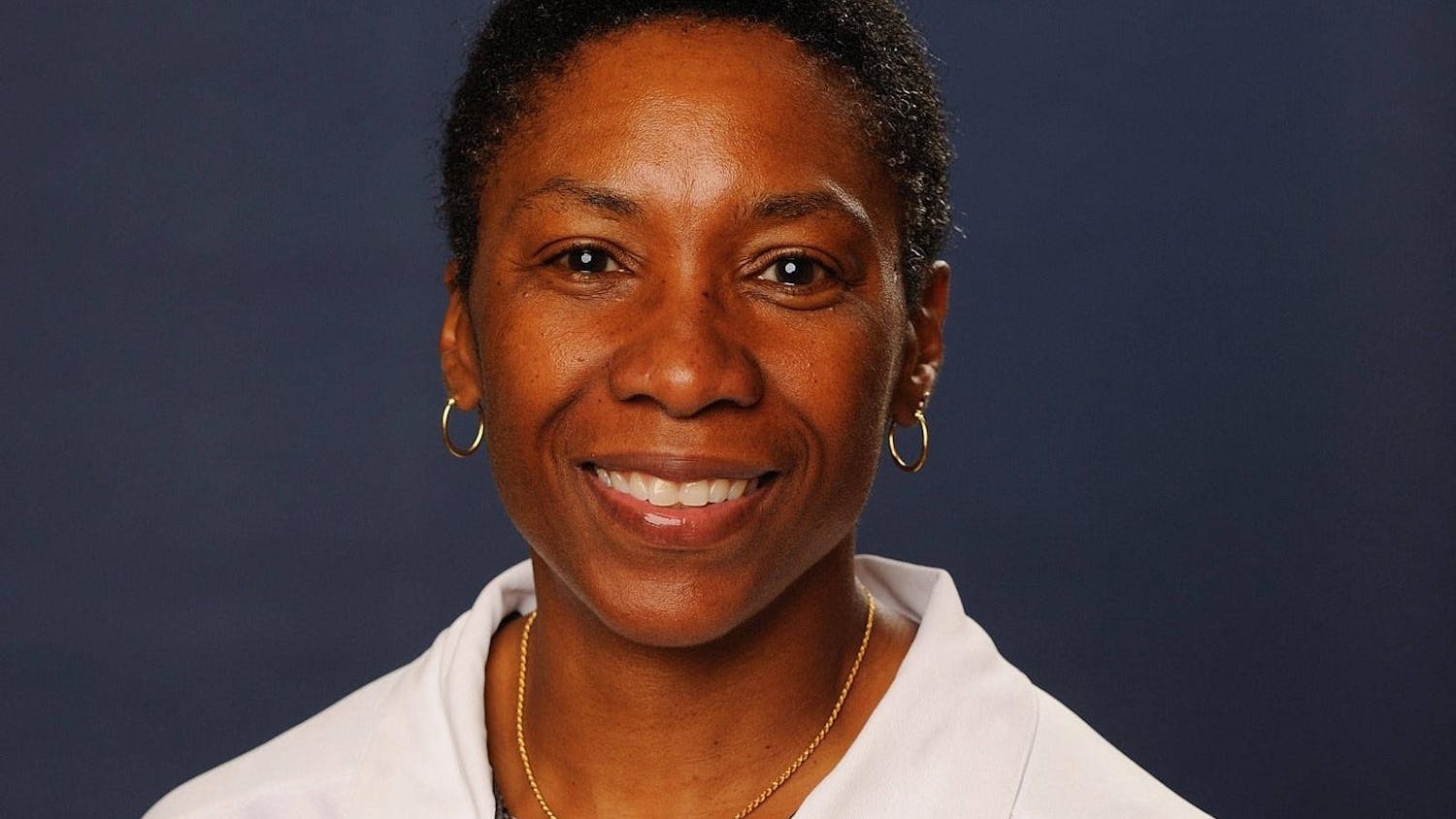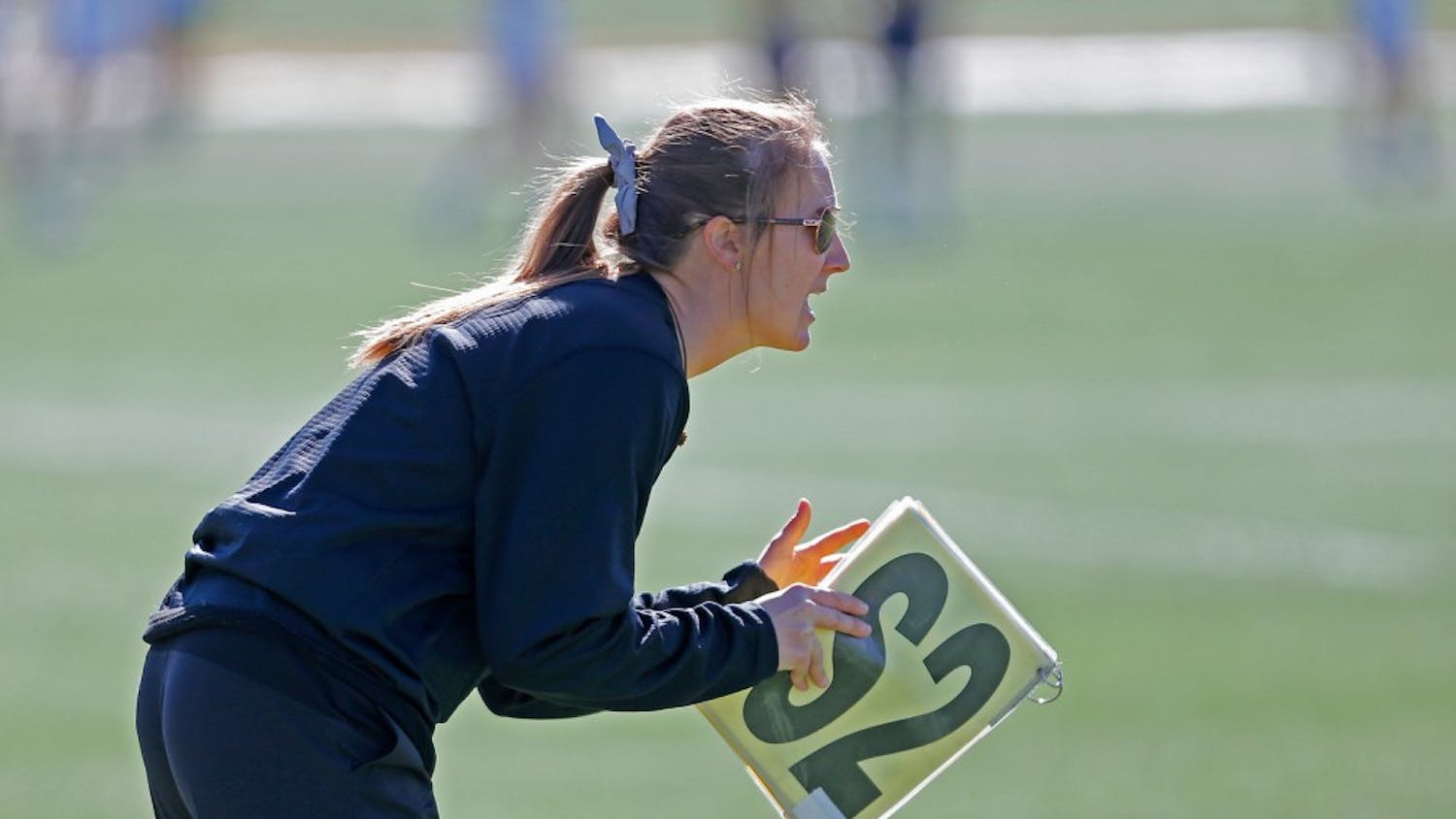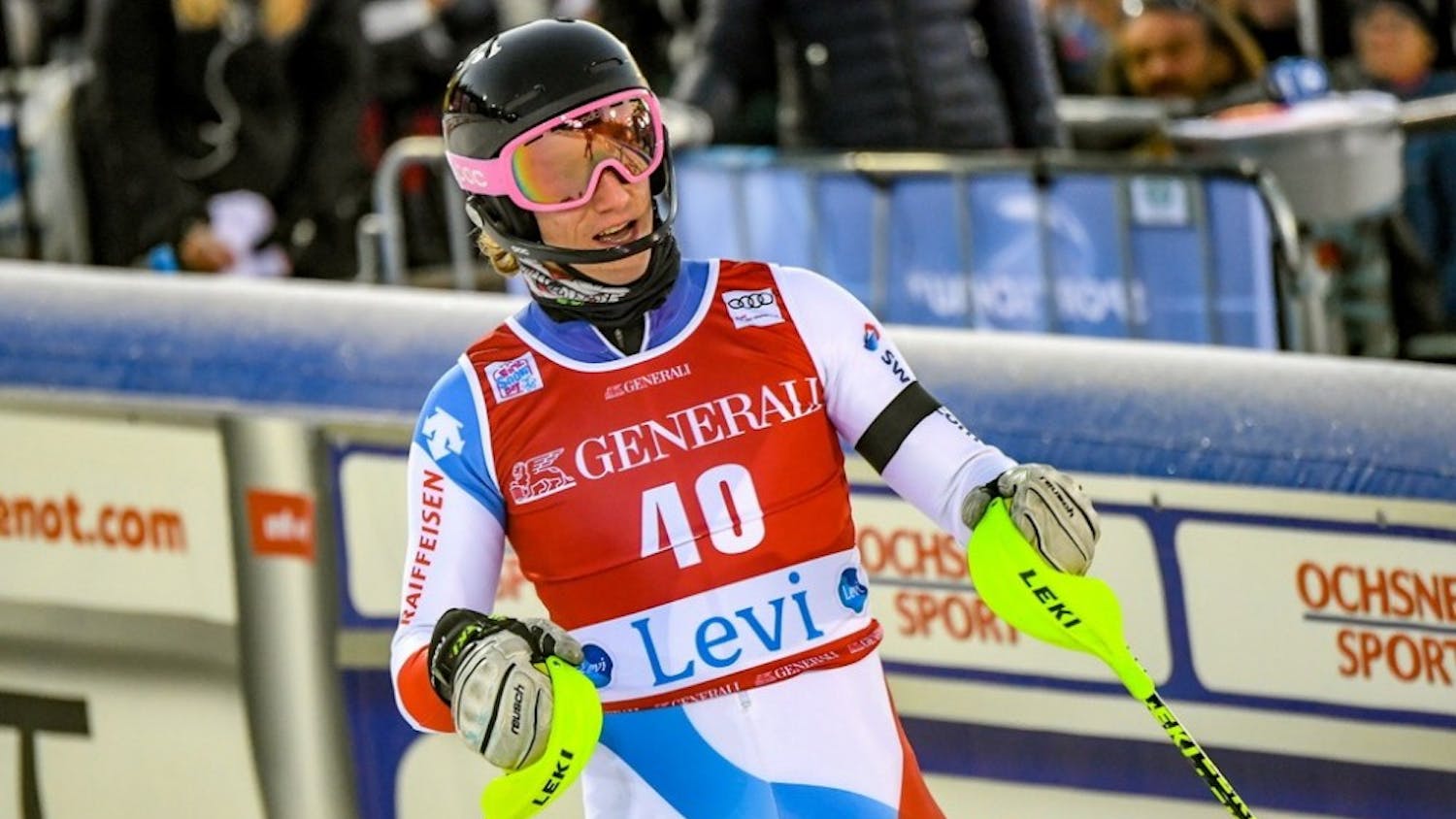A legendary track and field coach, Sandy Ford-Centonze not only inspired the athletes she coached to reach the best of their abilities on the track, but also brought a sense of warmth and kindness in relationships with her athletes that lasted well beyond their years at Dartmouth.
“Sandy was passionate about her student-athletes,” said athletics director Harry Sheehy. “She had this ability to be honest with student-athletes — but without crushing their spirit — which is a necessity in the toolbox of a coach.”
The longtime head coach of the Dartmouth women’s track and field team, Ford-Centonze died from cancer on Dec. 14. She was 59. A visitation was held on Dec. 18 at Ricker Funeral Home in Lebanon, followed by a public memorial on Jan. 4 at Rollins Chapel. She is survived by her sons Christian and Antonio, her mother Frances, her grandson Ryker, her brother Anthony Walker and her sisters Shawna Ford-Harper and Stacie-Ford Bonnelle.
Raised near Concord, NC, Ford-Centonze demonstrated both her athletic abilities and protective spirit from a young age, Harper said.
“She was a standout point guard in high school and was also the first black drum majorette at our high school,” Harper said. “She was always really protective, but also had a kind spirit and was interested in helping other people.”
Ford-Centonze attended Appalachian State University as an undergraduate, where she excelled as a captain of track and field team and in the 400-meter dash. She worked as an assistant coach at her alma mater from 1984 to 1986 and obtained a master’s degree in athletic administration before becoming head coach of the University of Vermont’s women’s track and field team in 1986. After coaching there for six seasons, in 1992 Ford-Centonze arrived in Hanover, where she would stay for the next 28 years.
Barry Harwick ’77, head coach of the men’s track and field team, worked with Ford-Centonze for all of those years. Hired within weeks of her arrival, Harwick recalled the impact she had on the team as both a coach and a mentor.
“She took a great deal of pride in helping her athletes improve,” Harwick said. “She also valued the lifelong relationships she built with her student-athletes.”
Harwick also added that Ford-Centonze had a significant impact on the Upper Valley, particularly with children.
“She took charge of the Grafton County One Lapper — a fun race for kids that happens during the Dartmouth Relays,” Harwick said. “She beamed when she saw those kids run and get their medals.”
Ford-Centonze was also highly devoted to her family. According to her son, Christian Centonze, she was always focused on making sure her sons performed well in school and sports.
“She instilled good character and a good work ethic in me,” he said. “As a coach, she was always an important role model for me and my brother in taekwondo and other sports growing up.”
During her coaching tenure at Dartmouth, Ford-Centonze led the women’s team to a number of successes. Under her leadership, the team placed seventh at the 2014 NCAA Indoor Championships — the highest finish an Ivy League school had ever accomplished at that meet. More recently, the team placed second in both the Indoor and Outdoor New England Championships during the 2017-18 season. One of her recent athletes, Cha’Mia Rothwell ’20, won both the Indoor and Outdoor Ivy League championships in hurdles for three consecutive years.
Recently, Ford-Centonze coached two athletes who would qualify for the Summer Olympic games — Abbey D’Agostino ’14 and Alexi Pappas ’12. At the 2016 Summer Olympics, D’Agostino represented the United States in the 5000m event, while Pappas represented Greece in the 10,000m event. D’Agostino achieved seven national titles during her college career — the most of any Ivy League student-athlete in the conference’s history.
As a coach, Ford-Centonze focused on helping each of her athletes improve. According to former mentee Wayne Burwell ’97, she excelled at tailoring individual workouts to her athletes’ needs.
“As a hurdler, she showed me how to run with steps and helped me work on my blocks,” Burwell said. “She was always very precise with her techniques and how she coached me.”
While Ford-Centonze often put great pride into her athletes’ accomplishments on the track, she also prioritized their well-being off the track. According to Rothwell, Ford-Centonze had a “motherly vibe about her.”
“She really cared about your mental health and wellness before how fast you could run on the track,” Rothwell said. “Anytime I needed something or something came up, I would never hesitate to give her a call.”
Danielle Okonta ’20 said that Ford-Centonze was like a “second mother” to her and the other sprinters and hurdlers in the winter.
“Coach Sandy always invited us to her home for brunch at the start of the season,” Okonta said. “We didn’t do anything track-related — she just liked having us around.”
Okonta also recalled that Ford-Centonze was passionate about other sports, particularly March Madness. Okonta said that Ford-Centonze — a lifelong fan of the University of North Carolina — would often be really passionate when it came to watching UNC basketball.
According to Harwick, Ford-Centonze’s lifelong relationships reflected in the number of former alumni who attended her memorial service.
“It was really heartwarming to see the number of alumni who came back and talked about their positive experiences with Coach Sandy,” Harwick said.
Even after the athletes she coached graduated, Ford-Centonze maintained close relationships with them. Burwell said that after he moved back to the Upper Valley in 2002, Ford-Centonze was instrumental in helping him navigate life as a single parent.
“She helped watch over my daughter when she competed in the Dartmouth Relays,” Burwell said. “We talked about our kids a lot, and she felt like much more of a mother to me.”
Correction appended (Jan. 14, 2020): This article has been updated to reflect that Ford-Centonze was raised near Concord, NC, not born there.

![Sandy_Ford2_SoutherInv17_JR[4].jpg](https://snworksceo.imgix.net/drt/d2abc1e2-5f1f-4e19-8808-805819efb17b.sized-1000x1000.jpg?w=1000&dpr=2)


